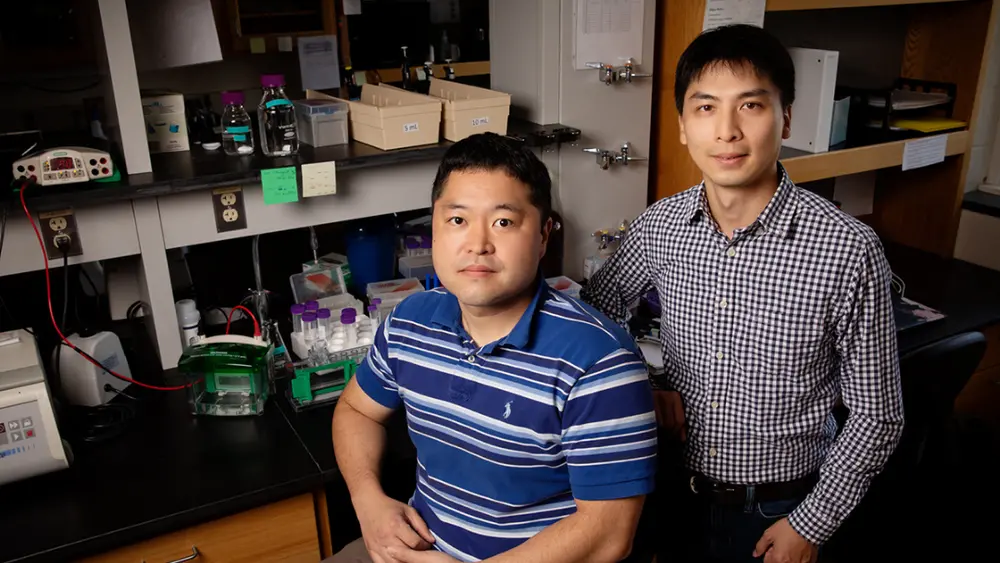
University of Illinois researchers have established the protein p53 as critical for regulating sociability, repetitive behavior, and hippocampus-related learning and memory in mice, illuminating the relationship between the protein-coding gene TP53 and neurodevelopmental and psychiatric disorders like autism spectrum disorder.
“This study shows for the first time that p53 is linked directly to autism-like behavior,” said Nien-Pei Tsai, an associate professor of molecular and integrative biology in the School of Molecular & Cellular Biology and a researcher at the Beckman Institute for Advanced Science and Technology.
In living systems, genes act as a biological version of binary code, using the letters A, C, G, and T instead of ones and zeroes to spell out cellular marching orders. Some genes — called coding genes — instruct cells to create proteins with specific functions. For example, the gene TP53 instructs cells to create the protein p53; its job is to regulate how other genes are expressed.
In this study, Tsai and his colleagues lowered hippocampal p53 levels in mice, looking for changes in gene expressions related to behavior. They observed that the decreased p53 levels:
- Promoted repetitive behavior in mice.
- Reduced sociability in mice.
- Impaired hippocampus-dependent learning and memory, especially in male mice.
The researchers also observed that p53 levels were elevated after a period of active communication between hippocampal neurons called long-term potentiation. Flexible neuron firing — known as plasticity — is related to positive learning and memory outcomes.
In a 2018 study, Tsai and his colleagues identified p53 as a key protein involved in the irregular brain cell activity seen in ASD and epilepsy. In future studies, they aim to explore how p53 coordinates the expression of those autism-linked genes to guide behavior.
The paper associated with this study is titled “Tumor suppressor p53 modulates activity-dependent synapse strengthening, autism-like behavior and hippocampus-dependent learning” and appears in the journal Molecular Psychiatry.
Photo: Professor Nien-Pei Tsai (right) and first author Kwan Young Lee, a senior research scientist in the School of Molecular and Cellular Biology. Photo by L. Brian Stauffer.

